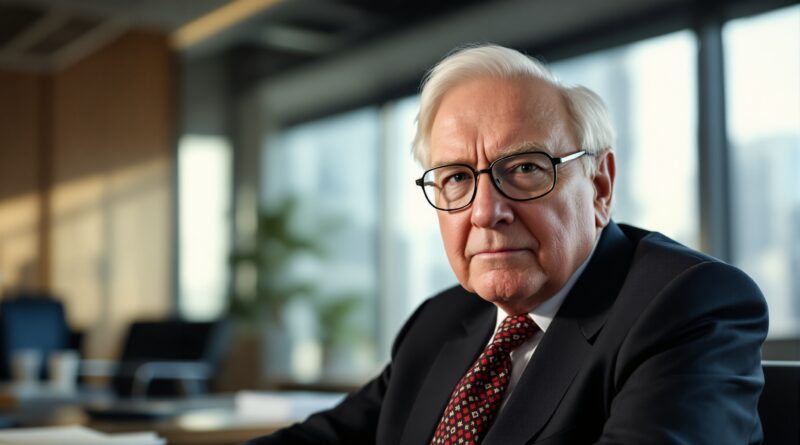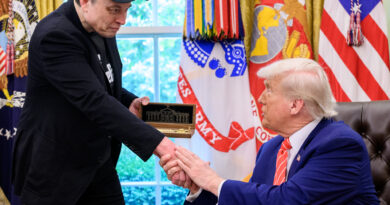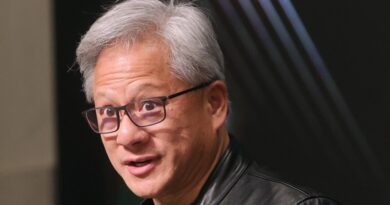AI Deepfakes Warn Buffett at 95: Berkshire Battles Impersonations
In a stark alert to investors and the public, Berkshire Hathaway has issued a warning about AI deepfakes impersonating its iconic CEO, Warren Buffett. The 95-year-old investment legend, known as the Oracle of Omaha, is facing a surge in fake videos that misuse his image to peddle bogus advice. This development underscores the growing dangers of AI deepfakes in the financial world, where trust is paramount.
Berkshire Hathaway’s statement, titled ‘It’s Not Me,’ highlights how these AI deepfakes feature realistic visuals of Buffett but pair them with generic, robotic audio. One such video, titled ‘Warren Buffett: The #1 Investment Tip For Everyone Over 50 (MUST WATCH),’ offers misleading tips that could lead viewers astray. The company stresses that less familiar audiences might fall for these AI deepfakes, potentially suffering financial losses.
Warren Buffett himself has voiced concerns, calling these AI deepfakes a ‘spreading virus.’ This isn’t the first time; in October 2024, he debunked false claims of his endorsements in politics and investments. As AI deepfakes become more sophisticated, they threaten not just Buffett’s reputation but the integrity of financial advice overall.
The Rise of AI Deepfakes and Their Mechanisms
AI deepfakes use advanced machine learning to swap faces and mimic voices, creating convincing forgeries. Tools like generative adversarial networks (GANs), which pit algorithms against each other to refine fakes, power this technology. While early AI deepfakes were clunky, today’s versions are nearly indistinguishable, especially in short clips.
For Buffett, the visuals in these AI deepfakes capture his signature glasses and suit, but the audio falls flat—lacking his folksy Nebraska twang. Experts explain that voice cloning requires vast data, and Buffett’s limited public speaking makes perfect replication hard. Still, the threat persists as AI deepfakes evolve rapidly.
The broader context includes a spike in AI deepfakes across sectors. In May 2025, the FBI noted malicious actors using AI-generated voices to impersonate officials, targeting personal accounts. This wave of AI deepfakes has prompted calls for better detection tools and regulations.
Historical Precedents in Celebrity Impersonations
AI deepfakes aren’t new to public figures. In 2023, deepfake videos of celebrities like Tom Hanks circulated, promoting scams. Buffett’s case echoes these, but his status as a financial guru amplifies the risk. Past incidents, like fake endorsements during elections, show how AI deepfakes can sway opinions or wallets.
Compared to earlier frauds, AI deepfakes are more scalable and harder to trace. Traditional scams relied on actors; now, one algorithm can generate endless variations. This shift demands vigilance from platforms like YouTube, where these AI deepfakes proliferate unchecked.
Stakeholders, from investors to regulators, must adapt. The SEC has warned about AI deepfakes in market manipulation, urging disclosure of synthetic media. Buffett’s experience highlights why financial icons are prime targets for AI deepfakes.
Why AI Deepfakes Matter to Investors and the Public
AI deepfakes pose real dangers by eroding trust in information sources. For everyday investors, a fake Buffett tip could lead to poor decisions, like chasing overhyped stocks. Berkshire notes that these AI deepfakes exploit Buffett’s credibility, built over decades of value investing success.
The impact extends to reputational harm. At 95, Buffett is stepping down as CEO by year’s end, handing reins to Greg Abel. AI deepfakes could tarnish his legacy, confusing well-meaning advice with fabricated nonsense. This matters in an era where AI drives markets but also misinformation.
Broader implications include heightened scam risks. Financial losses from AI deepfakes could run into millions annually, per cybersecurity firms. As AI deepfakes target finance, they challenge platforms to improve moderation, balancing free speech with fraud prevention.
In this vein, recent OpenAI revenue surges show AI’s dual edge—innovation alongside perils like deepfakes. Investors must verify sources, especially amid tech booms.
Expert Opinions on Combating AI Deepfakes
Cybersecurity experts like those at CrowdStrike emphasize watermarking AI-generated content as a frontline defense against AI deepfakes. Dr. Emily Chen, an AI ethics professor at Stanford, warns that without global standards, AI deepfakes will outpace regulations. She advocates for education, teaching users to spot inconsistencies like unnatural blinks or audio mismatches.
Industry insiders from Big Tech agree. Microsoft’s Satya Nadella has pushed for ‘content authenticity initiatives’ to label AI deepfakes. Meanwhile, academics point to blockchain for verifying media origins, though adoption lags.
From Buffett’s circle, Berkshire’s move sets a precedent. Analysts say proactive warnings like this deter creators of AI deepfakes, signaling zero tolerance. As one Wall Street veteran noted, ‘Buffett’s voice carries weight; his call-out could slow the tide.’
Stakeholder Perspectives on the Buffett AI Deepfakes
Investors react with caution. Forums buzz with discussions on spotting AI deepfakes, from checking upload dates to cross-verifying advice. Retail traders, often Buffett fans, feel betrayed by these impersonations, fearing misled portfolios.
Regulators are stepping up. The FTC monitors AI deepfakes for deceptive practices, while Congress debates bills mandating disclosures. Affected parties, like potential scam victims, share stories of near-misses, underscoring the human cost.
YouTube, a key vector, faces pressure to demonetize AI deepfakes. Users and creators alike call for better AI detection, linking this to past events like the US-China AI race warnings, where tech rivalry fuels such innovations.
Berkshire’s fans honor Buffett’s resilience. At 95, his focus remains on long-term value, undeterred by AI deepfakes. This perspective inspires stakeholders to prioritize authenticity.
Background on Warren Buffett and Berkshire Hathaway
Warren Buffett, born in 1930, transformed Berkshire Hathaway from a textile firm into a $900 billion conglomerate. His approach—buying undervalued companies and holding forever—has delivered legendary returns. Nicknamed the Oracle of Omaha, Buffett’s annual letters are bibles for investors.
Berkshire spans insurance, railroads, and consumer goods, with stakes in Apple and Coca-Cola. Buffett’s aversion to tech fads makes AI deepfakes ironic foes. His past political endorsements, like for Obama, add layers to why scammers target him.
As successor Greg Abel prepares, Buffett’s exit amplifies these warnings. AI deepfakes threaten the firm’s brand, built on transparency. This episode reflects Buffett’s career: turning challenges into teachable moments.
Related to broader AI trends, see how AI productivity paradox boosts efficiency while risking misinformation like deepfakes.
Policy and Industry Comparisons to AI Deepfakes
Compared to Hollywood’s deepfake battles over actor likenesses, finance’s stakes are higher—dollars at risk. The EU’s AI Act classifies deepfakes as high-risk, requiring labels; the US lags with voluntary guidelines.
In crypto, AI deepfakes have scammed millions via fake Elon Musk promos. Buffett’s case mirrors this, but his gravitas draws more eyes. Industries like banking push for AI audits, contrasting lax social media oversight.
Lessons from the 2024 election deepfakes, where fakes swayed voters, apply here. Policies must evolve, perhaps mandating AI watermarks for financial content. Buffett’s warning accelerates this dialogue.
Future Implications of AI Deepfakes in Finance
Looking ahead, AI deepfakes could reshape investor behavior, fostering skepticism toward online advice. Platforms may integrate AI detectors, but arms races with creators loom. For Berkshire, this might spur internal AI policies post-Buffett.
What to watch: Regulatory crackdowns, like expanded FTC powers, and tech innovations in verification. If unchecked, AI deepfakes might inflate scam losses to billions by 2030, per forecasts.
Positive outlooks include AI tools fighting fakes, like Adobe’s Content Credentials. Buffett’s legacy could drive ethical AI use, ensuring deepfakes don’t undermine trust.
As markets grapple with Michael Burry AI bets, balancing hype and risks is key. Investors should heed Buffett: verify before acting.
Practical Lessons from the Buffett AI Deepfakes Saga
Key takeaways: Always source advice from official channels, like Berkshire’s site. Use tools like Google’s reverse image search to check AI deepfakes. Diversify info sources to avoid single-point failures.
For creators, ethical AI use means disclosing synthetics. Regulators should prioritize finance in anti-deepfake laws. Personally, Buffett’s calm amid chaos teaches resilience against tech disruptions.
This incident, tied to rising Perplexity Snap deal innovations, reminds us AI’s power demands responsibility.
For readers new to side gigs with AI, understanding tools like deepfakes helps navigate opportunities safely.
Investors can benefit from Warren Buffett’s secrets to staying calm, applying them to AI-era uncertainties.
To learn more about index fund investing basics, it provides stability against volatile info like deepfakes.
Those interested in ESG investing should explore ethical tech’s role in combating AI deepfakes.
Understanding stock market basics equips you to spot genuine advice amid fakes.
Source: Yahoo Finance




